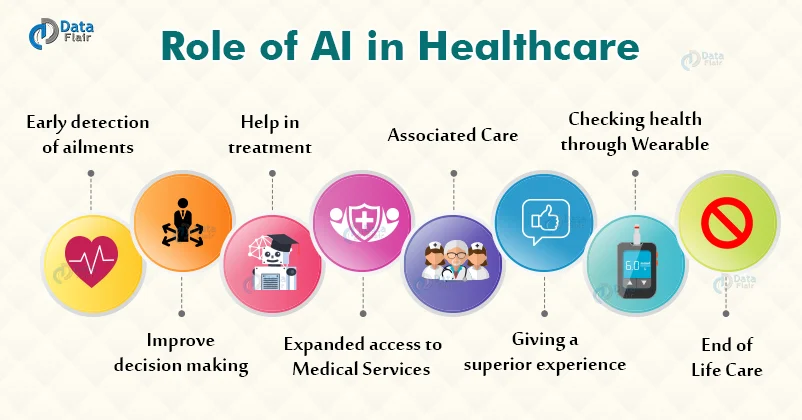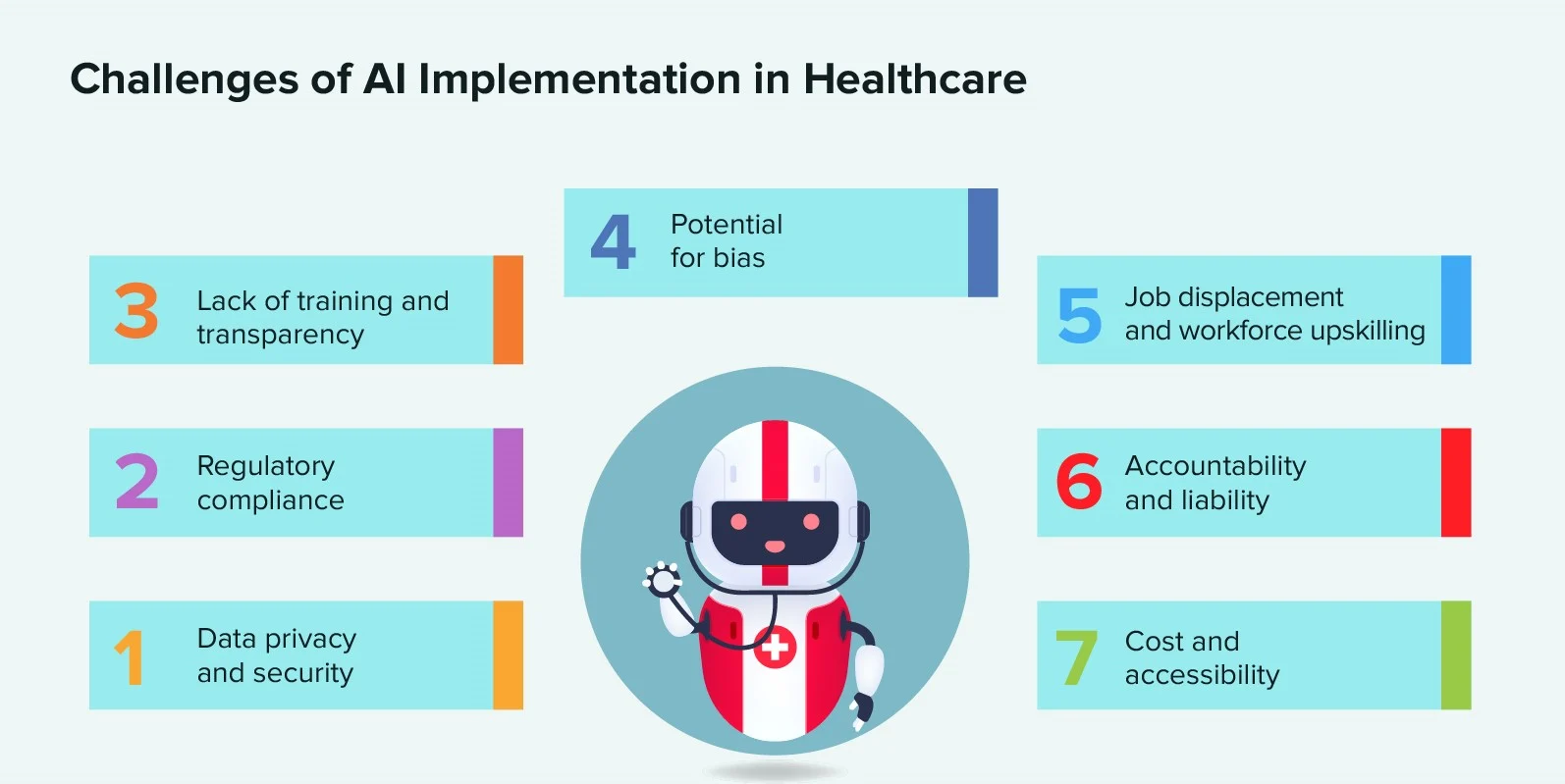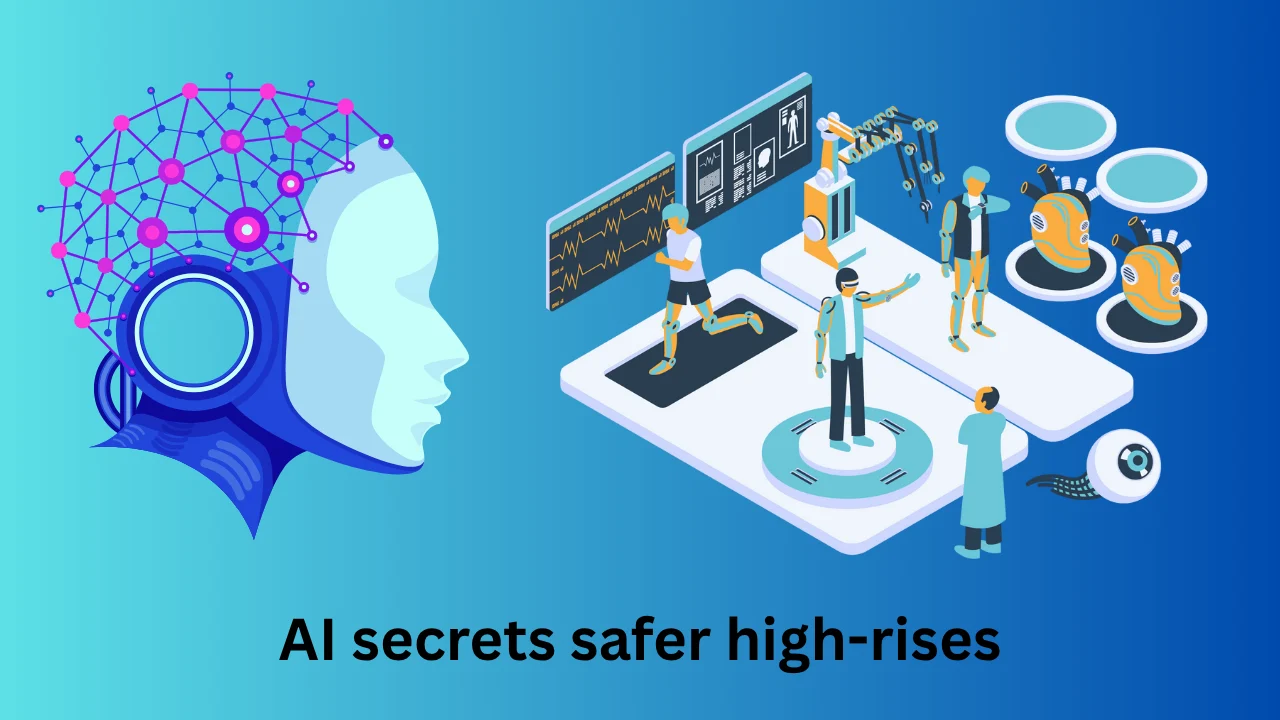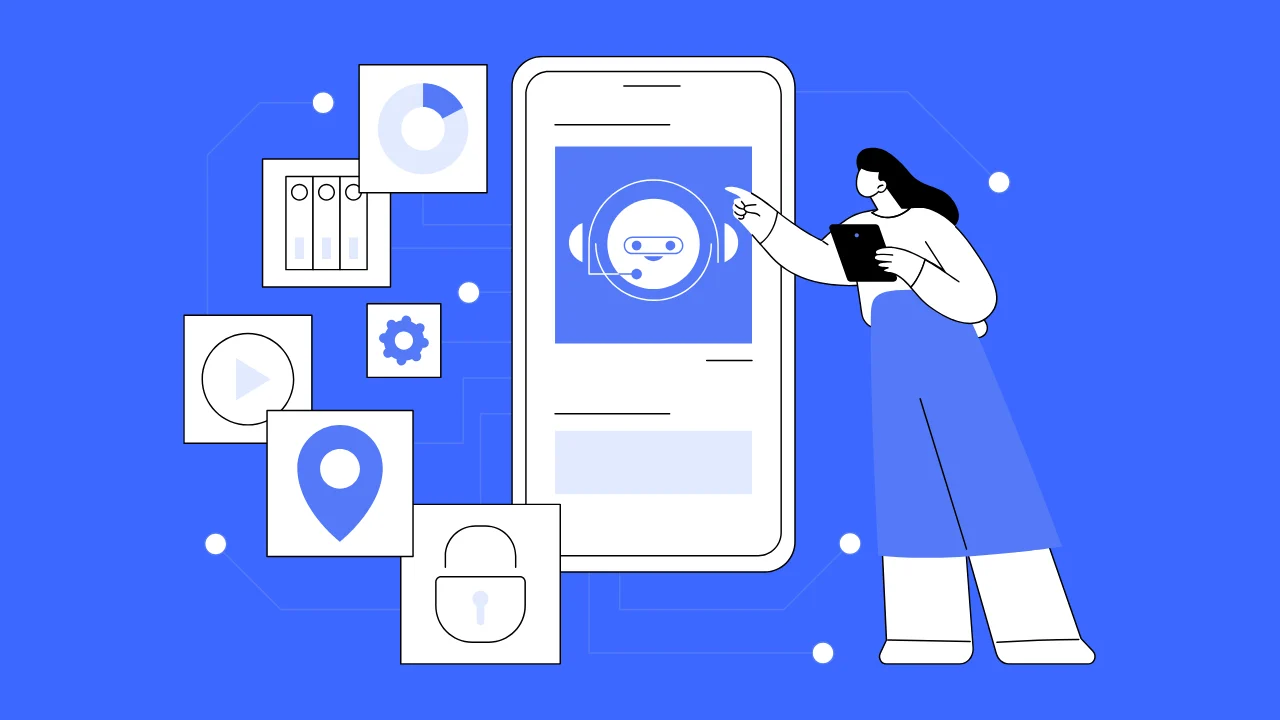Artificial intelligence (AI) is revolutionizing healthcare, and by 2025, its impact on patient care will be transformative. AI roles in patient care is not just a buzzword—it’s a powerful force reshaping how healthcare providers deliver services, manage workflows, and engage with patients. With the ability to process vast amounts of data, AI enhances efficiency, accuracy, and personalization, addressing challenges like clinician burnout, rising costs, and complex medical needs. This article explores three pivotal roles of AI in patient care set to define the future of medicine: administrative efficiency, clinical decision support, and patient engagement. Let’s dive into how these AI healthcare roles will elevate patient outcomes by 2025.
Introduction: The Dawn of AI in Healthcare
The healthcare sector stands at a crossroads, where technology meets human compassion. AI is leading this charge, promising a future where patient care is faster, smarter, and more accessible. By 2025, AI in patient care will streamline operations, empower clinicians with actionable insights, and foster stronger patient-provider relationships. From automating paperwork to predicting health risks, AI’s potential is boundless. This article highlights three key areas where AI will shine: operational efficiency, clinical support, and patient interaction—each a cornerstone of tomorrow’s medicine.
Role 1: AI in Administrative and Operational Efficiency
Streamlining Documentation with Patient Management AI
Administrative tasks often bog down healthcare professionals, leaving less time for patients. Patient management AI tackles this by automating documentation. Tools like AI-powered scribes use natural language processing (NLP) to transcribe doctor-patient conversations, update electronic health records (EHRs), and reduce manual input. For example, companies like Nuance are pioneering solutions that cut documentation time by up to 50%, freeing clinicians to focus on care.
Enhancing Scheduling and Resource Allocation
AI also optimizes scheduling and resource management. Predictive algorithms analyze patient data to reduce no-shows, streamline appointments, and allocate hospital resources efficiently. A hospital using AI for clinical workflows can predict peak demand, ensuring beds and staff are available when needed. This efficiency translates to shorter wait times and better patient experiences.
How It Improves Patient Care
By minimizing administrative burdens, AI allows doctors to prioritize patients over paperwork. According to a 2023 BMC study, “AI systems leveraging NLP technology have the potential to automate administrative tasks, optimizing clinical workflow and enabling clinicians to focus more time on caring for patients.” This shift boosts satisfaction and enhances care quality.
Table: Efficiency Gains with AI
| Task | Manual Time | AI Time | Time Saved |
|---|---|---|---|
| EHR Updates | 20 min | 5 min | 15 min |
| Appointment Scheduling | 10 min | 3 min | 7 min |
Role 2: AI in Clinical Decision Support
AI-Powered Diagnostics
In clinical settings, AI in patient care excels at diagnostics. Machine learning models analyze medical images, lab results, and patient histories to detect diseases with precision. For instance, AI tools can spot lung cancer in CT scans faster and more accurately than some radiologists, as noted in a 2023 Nature study: “AI’s ability to analyze medical images often exceeds human precision.”
Crafting Personalized Treatment Plans
AI tailors treatments to individual needs, ushering in precision medicine. By integrating genetic data and health records, artificial intelligence patient outcomes improve through customized therapies. Oncology benefits greatly, with AI predicting drug efficacy for cancer patients, reducing trial-and-error approaches.
Predictive Analytics in Action
Predictive analytics, a hallmark of AI healthcare roles, forecasts patient risks like readmissions or disease progression. Hospitals using AI can intervene early, cutting costs and saving lives. A 2024 WHO report states, “AI technologies enable proactive healthcare delivery through predictive insights.”
Real-World Impact
AI-driven clinical support enhances decision-making, leading to better outcomes and fewer errors. It’s a lifeline for overworked clinicians facing complex cases.
Role 3: AI in Patient Engagement and Monitoring
AI Chatbots: Your 24/7 Health Companion
AI in patient care extends to direct patient interaction via chatbots and virtual assistants. These tools offer round-the-clock support, answering questions and triaging symptoms. Babylon Health’s chatbot, for example, helps patients decide when to see a doctor, easing pressure on emergency services.
Wearables and Remote Monitoring
Wearable devices paired with patient management AI track vital signs in real time. AI analyzes this data to detect anomalies—like irregular heart rhythms—alerting doctors instantly. This is critical for managing chronic conditions like diabetes or hypertension.
Boosting Adherence with AI
AI enhances patient adherence by sending tailored reminders and educational content. A Mayo Clinic report notes, “AI can help people manage chronic illnesses by connecting them with therapy and reminding them to take medication.” This fosters proactive health management.
Table: Benefits of AI Monitoring
| Feature | Benefit |
|---|---|
| Real-Time Data | Early detection of issues |
| Personalized Alerts | Improved adherence and engagement |
[Image: Wearable Device Monitoring Patient Data]
Caption: AI-powered wearables tracking health metrics in real-time.
How AI Roles in Patient Care Works

The Technology Behind the Roles
AI relies on machine learning, NLP, and big data analytics to function. In diagnostics, deep learning models process images; in administration, NLP interprets spoken words; in monitoring, predictive models analyze trends. These systems learn from vast datasets, improving over time.
Integration into Healthcare Systems
Hospitals integrate AI via EHR platforms and cloud-based tools. Training staff to use these systems ensures seamless adoption, bridging the gap between tech and care.
Challenges of AI Roles in Patient Care

Data Privacy Concerns
AI’s reliance on patient data raises privacy risks. Compliance with laws like HIPAA is non-negotiable, yet breaches remain a threat. Robust encryption and consent protocols are vital.
Bias and Fairness Issues
If AI models train on skewed data, they may favor certain demographics, skewing artificial intelligence patient outcomes. Diverse datasets and regular audits can mitigate this.
Maintaining Human Oversight
AI must complement, not replace, human judgment. Over-reliance could erode trust, so clinicians must retain final authority.
Overcoming Challenges
Solutions for Privacy
End-to-end encryption and anonymized data processing protect patient information. Transparency in data use builds trust.
Addressing Bias
Developers are prioritizing inclusive datasets and fairness algorithms to ensure equitable care across populations.
The Future of AI Roles in Patient Care
Emerging Trends by 2026
By 2026, AI will expand into drug discovery, genomics, and telemedicine. AI for clinical workflows will evolve, integrating with robotics for surgeries and virtual reality for training.
Preparing the Healthcare Workforce
Training programs will equip clinicians with AI skills, ensuring they harness its full potential while maintaining empathy in care.
A Transformative Path Forward
The future of medicine hinges on AI’s ability to revolutionize patient care. By 2025, AI in patient care will streamline administration, enhance clinical decisions, and deepen patient engagement. These AI healthcare roles promise a healthcare system that’s efficient, precise, and compassionate. Embracing this technology—while addressing its challenges—will pave the way for healthier communities and a resilient medical landscape. The journey is just beginning, and the possibilities are endless.
FAQs
What does AI in patient care mean?
It refers to using AI technologies to improve healthcare delivery, from diagnostics to patient monitoring, enhancing efficiency and outcomes.
How does AI boost administrative efficiency?
AI automates tasks like scheduling and record-keeping, saving time and letting clinicians focus on patients.
Will AI replace doctors by 2025?
No, AI supports doctors by providing insights, but human expertise remains essential for care.
What ethical issues arise with AI in healthcare?
Privacy, bias, and accountability are key concerns, requiring strict safeguards and oversight.
How do patients benefit from AI monitoring?
Patients gain from early detection, personalized care, and better chronic disease management through AI tools.






